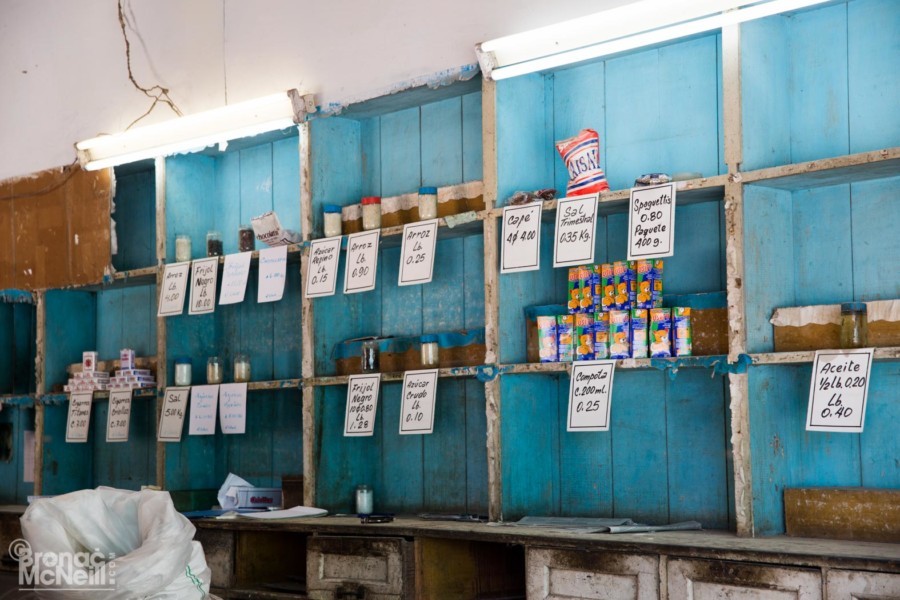marathag
Banned
and everywhere else it was ever tried for running an entire countryHe also argues that communism should be tried again. It was just implemented poorly in the USSR.
and everywhere else it was ever tried for running an entire countryHe also argues that communism should be tried again. It was just implemented poorly in the USSR.
It's not so bad in Cuba.and everywhere else it was ever tried for running an entire country
My Lai as a massacre was, from its beginning, the target of a cover-up operation that was successful for several months. The Modern War Institute makes a clear case against the narrative about communist bias in American media during the war which would have supposedly incurred defeat.That's correct. How many times do you hear about the atrocities committed by the VC in Hue during Tet? All you ever hear about when they mention Vietnam atrocities is My Lai and other alleged atrocities by the US troops. I'm not dismissing MyLai or other similar instances, but in no way was it official policy whereas in the case of the VC and the NVA in Hue the murder of South Vietnamese officials and Catholic nuns was a deliberate policy not a couple of troops going beyond the orders.
1959, Cuba was the richest country in the Caribbean. 2020, after all those years of Revolution, is richer than HaitiIt's not so bad in Cuba.


Because they didn't want to enjoy Uncle Ho's Land Reformarguably illegitimate regime
| North Vietnam (1954-75): 50,000 [make link] |
|
Of course, it makes sense that Cuban supermarkets would be frequently empty after all these years, considering how the US still maintains a general trade embargo on the island...1959, Cuba was the richest country in the Caribbean. 2020, after all those years of Revolution, is richer than Haiti
Success!
While North Vietnam's land reform process did have its own deplorable excesses of violence, it cannot be understated how much it actually improved the peasant situation in Vietnam. Breaking up large agricultural estates and redistributing them among the lower classes endeared these to the North Vietnamese communist regime and by extension encouraged South Vietnamese peasants to support the communists. Contrast this to the big, pseudo-feudal landlords of the south who routinely extorted their subjects and refused to give up their political power.Because they didn't want to enjoy Uncle Ho's Land Reform
Because they didn't want to enjoy Uncle Ho's Land Reform
North Vietnam (1954-75): 50,000 [make link]
- Michael Clodfelter, Vietnam in Military Statistics (1995): 15,000 executions, 1954-56; 1,000 killed and wounded in peasant uprising, 1956-57
- Bernard Fall, The Two Vietnams (1963): 50,000 executed in connection with land reform
- Gilbert: 100,000 peasants executed
- Harff & Gurr: 15,000 Catholic landlords, rich and middle peasants killed in North Vietnam, 1953-54
- Guenter Lewy, America in Vietnam (1978): 50,000 executed, 1955-56, under land reform law of 1953
- Rummel:
- 415,000 democides in NVN, 1945-56
- Antinationalist Terror: 15,000
- Land Reform: 250,000
- Political Struggles: 100,000
- Uprisings: 13,000
- Prison/Labor Dead: 24,000
- Other: 13,000
- 216,000 democides during the Vietnam War, 1957-75:
- in NVN: 50,000
- in SVN: 166,000
- Hanson, Victor Davis, Carnage and culture (2001): "well over 10,000 ... may have approached 100,000."
- Spencer Tucker, Encyclopedia of the Vietnam War (1998): up to 100,000 landlords executed or dead of starvation
- Marilyn Young, The Vietnam Wars: 1945-1990(1991) cites:
- Edwin Moise, "the most careful historian of the land reform": 3,000-15,000
- "Inflated":
- Bernard Fall: 50,000 executed
- Richard Nixon: 500,000 dead
- AVERAGE: Three experts put the total around 15,000. Four experts put it around 50,000 to 100,000. Two put it around a half million. Others just give the range. The safest guess would be 50-100,000.
Not only that, but the US media also had no regard for OpSec. Operation Lam Son 719 (the 1971 South Vietnamese invasion of Laos to cut the Ho Chi Minh Trail) was perhaps the most egregious example of journalists getting """their""" side killed.As others have mentioned the tendency of media to amplify anti-communist atrocities and ignore worse communist atrocities, the incompetent conduct of the war from the american side, the american political refusal to invade the North with boots on the ground in order to destroy the NVA, the unwillingness to invade Laos which was for all intents and purposes an North Vietnamese puppet state to interdict and destroy the Ho-Chi-Min trail, the South Vietnamese lack of strong leadership after Diem was murdered, the tolerance of absurd levels of South Vietnamese corruption.
These are all things that should have enabled the destruction of South Vietnam. And yet it managed to survive all of these things until the U.S. congress cut them off from American Air power and money to purchase weapons, ammo and oil.
That was what killed South Vietnam.
Morale, aid from the Soviets and Chinese, Laos as a supply line, ineptness of South Vietnam, French and U.S., etc. etc.
If the US really wants an anti-communist bulwark in SEA. Thailand or Indonesia can fill that role better than South Vietnam ever could.So long as the US is unwilling to reunify Vietnam by force and risk escalating the conflict with China as they did in Korea, there's really no way for South Vietnam to survive, much less win. It can possibly wait out until relations deteriorate between North Vietnam and China (thus crippling its main lifeline), but that really only happened after reunification under the north became a fact, and tensions between China and Vietnam over Cambodia came to the fore.
Because there is no other country on Earth that they can buy from, right?Of course, it makes sense that Cuban supermarkets would be frequently empty after all these years, considering how the US still maintains a general trade embargo on the island...
So much better to be extorted by the State, eh?When you're a peasant whose produce is often extorted by your landlord, without favorable avenues of flight or debt paying,
The restrictions established for the US embargo on Cuba stipulate that no foreign company that does trade with Cuba can also do trade within the US without severe restrictions. The intent of this is that companies will choose the US, a large and thriving market, over the comparatively tiny economy of Cuba. The embargo has been relaxed occasionally, but it remains.Because there is no other country on Earth that they can buy from, right?
Side note, but Venezuela is not a "marxist" economy. The country is governed by nationalist regime intent on modernization and increasing productivity to form a competitive regional bloc. Chavez' and Maduro's talk about "socialism" is merely an useful discourse point taped on top of that -- the Venezuelan working class has its own interests and grievances independent of the ruling party. Such can also be seen in the PRC where the local labor movement frequently goes on strike in conflict with the party apparatus.Or maybe because it's a non functioning economy, one that relied on the USSR for 30 years of subsidies , and Chavev in Venezuela for another 15 before that Marxist Economy ran off the rails as well.
The mining of Haiphong Harbor was a very important way to cut off vital fuel supplies arriving from the Soviet Union by sea, the problem was it happened way too late in the war and didn’t stop supplies coming over the Chinese border. Nixon was actually the one to give the order and it was more political theatre than actual strategy. At the time Nixon was trying to de-escalate the conflict and turn over the responsibility for fighting to the Army of the Republic of (South) Vietnam (which given the corruption, incompetence, and inexperience of said army was a terrible idea). Basically Vietnamization was giving the South even more equipment (which the U.S. had been doing for about a decade with no success), giving them some American assistance (such as mining Haiphong Harbor and keeping American air power in place) while withdrawing U.S. troops. Nixon also had pretty good relationships and understanding of both China and the USSR (which is kinda strange and amazing if you think about how anti-communist he was) and knew just how to poke them without getting bit. In the end the actions that Nixon undertook was not going to change the war and the Watergate Scandal is probably what put the final nail in the coffin of South Vietnam, as Congress was not about to keep the promises (which Nixon personally gave to Nguyen Than Thieu, the South’s last real leader) or agendas of a disgraced president.The U.S. did mine Haiphong Harbor, and the Soviets, as far as I can tell, just complained about it without doing anything (other than ordering their ships to stay in harbor so as not to be sunk, of course).
Canadian companies have ignored this for decades and faced no repercussions.The restrictions established for the US embargo on Cuba stipulate that no foreign company that does trade with Cuba can also do trade within the US without severe restrictions.